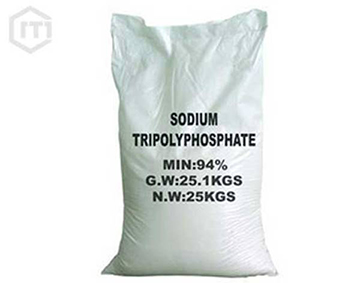Many factors affect the quality of Sodium Tripolyphosphate (STPP) – here’s a look at some of them.
 Sodium Tripolyphosphate, also known as STPP, is an alkaline salt used extensively in various usages such as water treatment facilities, manufacturing of cleaning products, food preservatives, etc. It is manufactured by mixing disodium phosphate and monosodium phosphate in the chemical laboratories.
Sodium Tripolyphosphate, also known as STPP, is an alkaline salt used extensively in various usages such as water treatment facilities, manufacturing of cleaning products, food preservatives, etc. It is manufactured by mixing disodium phosphate and monosodium phosphate in the chemical laboratories.
STPP appears to be white or colorless crystals that are water-soluble and flow very well. It is a phosphate chemical that has been used worldwide in both food and industrial grades. But, you must select the best quality of sodium tripolyphosphate for having the best of its usage. Many factors may affect the quality of STPP.
The degree of neutrality to be controlled must equal 3.00, the reaction of which would determine the requisite amount of substances produced. However, through actual practice, this value might deviate from its actual rule.
A low neutralization degree would mean high phosphorus, low pyro sodium, high water-soluble, and much other non-efficient product value. As a rule, the neutralization degree is responsible for the quality of the final pentasodium product.
The amount of water in the material considers the degree of the concentration of the neutralizing solution. The type 1 sodium tripolyphosphate, in the polymerization furnace, cooperates well with the little water vapor.
If the other indicators in the process remain the same, the neutralizing solution has a higher degree of concentration, and the type 1 STPP will continue to be high. If the neutralization solution has a lower degree of intensity, the type 1 STPP will also be quite low.
Generally speaking, the pressure of the high-pressure pump affects the quality of the final product because there is an effect of sludge particles entering the polymerization furnace. Higher pressure gives a better atomization effect and lowers the density of the final output. The pentasodium content is higher with a better polymerization effect.
As the combination of spray guns has a direct effect on the atomization angle, it is an essential factor affecting the quality of STPP. If the atomization angle is small, the spray distance will be longer, resulting in the shortening of the polymerization time. This can make the content of pentasodium triphosphate low.
Also, it would increase sodium pyrophosphate content and reduce the total phosphorus, thereby making the products unfit for use. When the atomization angle is large, the spray distance becomes shorter, and the material in the polymerization furnace remains for a longer time. Then the quality of the product would be better.
This is also an essential factor that affects the output quality through polymerization. With all the stable indicators in the process, if the polymerization furnace’s speed is faster, the duration of retention time of the respective material in the polymerization furnace will be shorter.
It might cause incomplete polymerization of the material and make the content of pentasodium low. While the content of pyrophosphate increases, the total amount of phosphorous increases with the high water-soluble matter. The quality of the product will be unqualified.
When the sludge reacts in the furnace, it gives rise to a large amount of water vapor. The wind draws away from the steam in the tail of the furnace to gain the dry materials. The height of the wind pressure has a direct effect on the rise and fall of pentasodium type 1 because; the little pressure has a more significant influence on the type 1 pentasodium.
You must consider all the significant conditions while controlling the production process and ensuring the quality of the product.
Scott Ellyson, CEO of East West Manufacturing, brings decades of global manufacturing and supply chain leadership to the conversation. In this episode, he shares practical insights on scaling operations, navigating complexity, and building resilient manufacturing networks in an increasingly connected world.